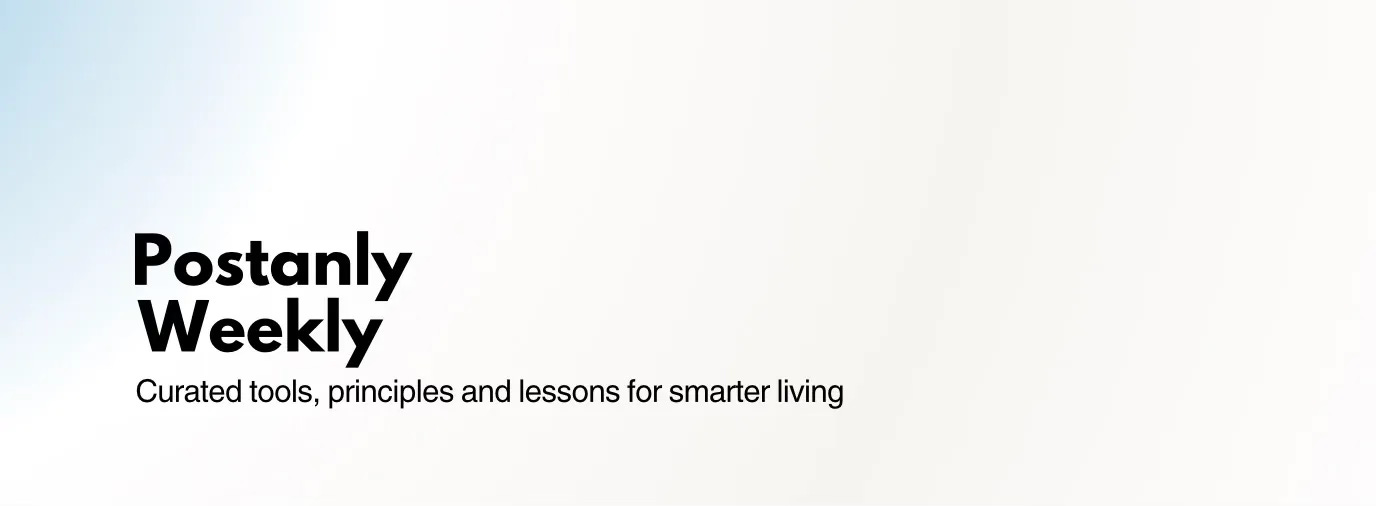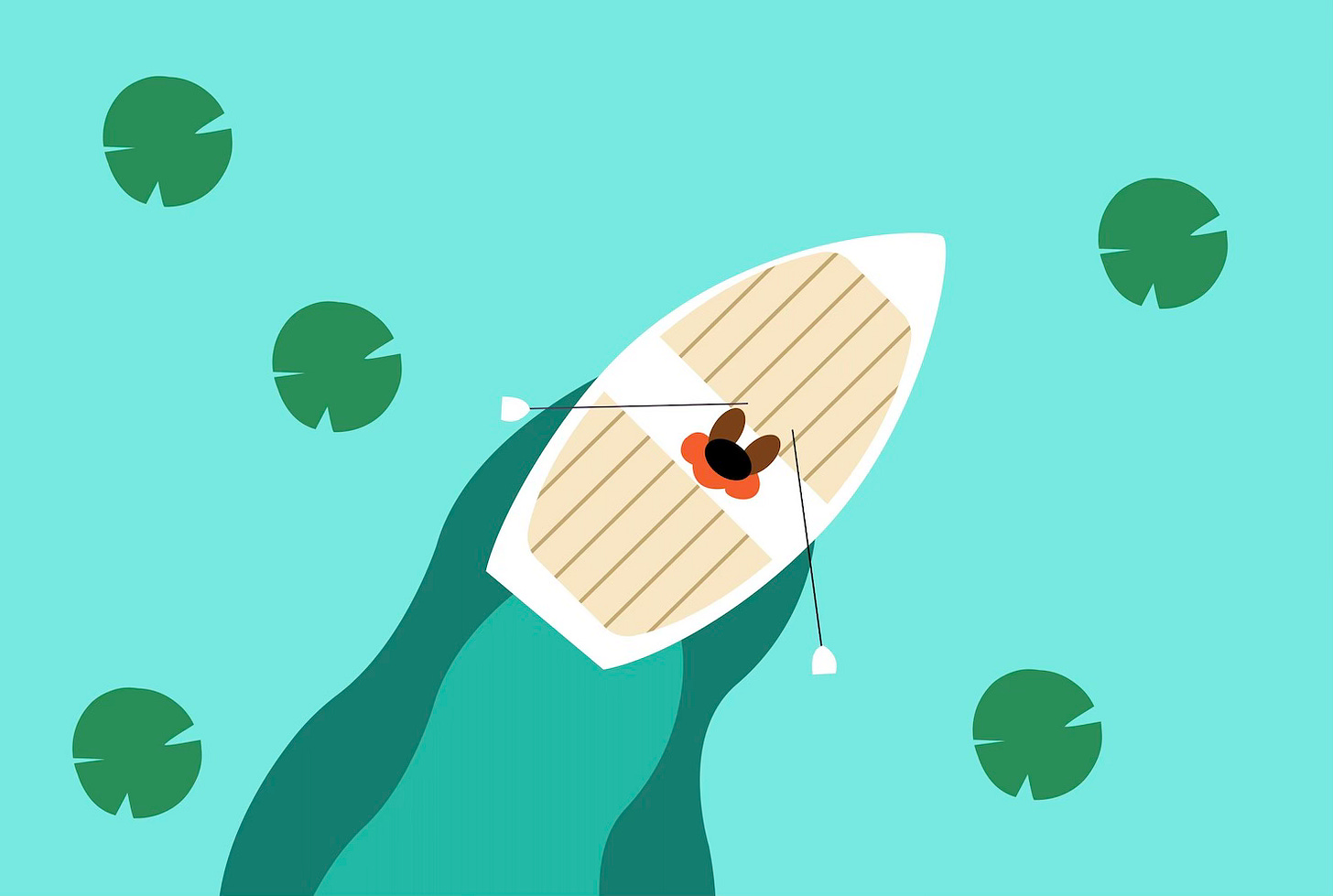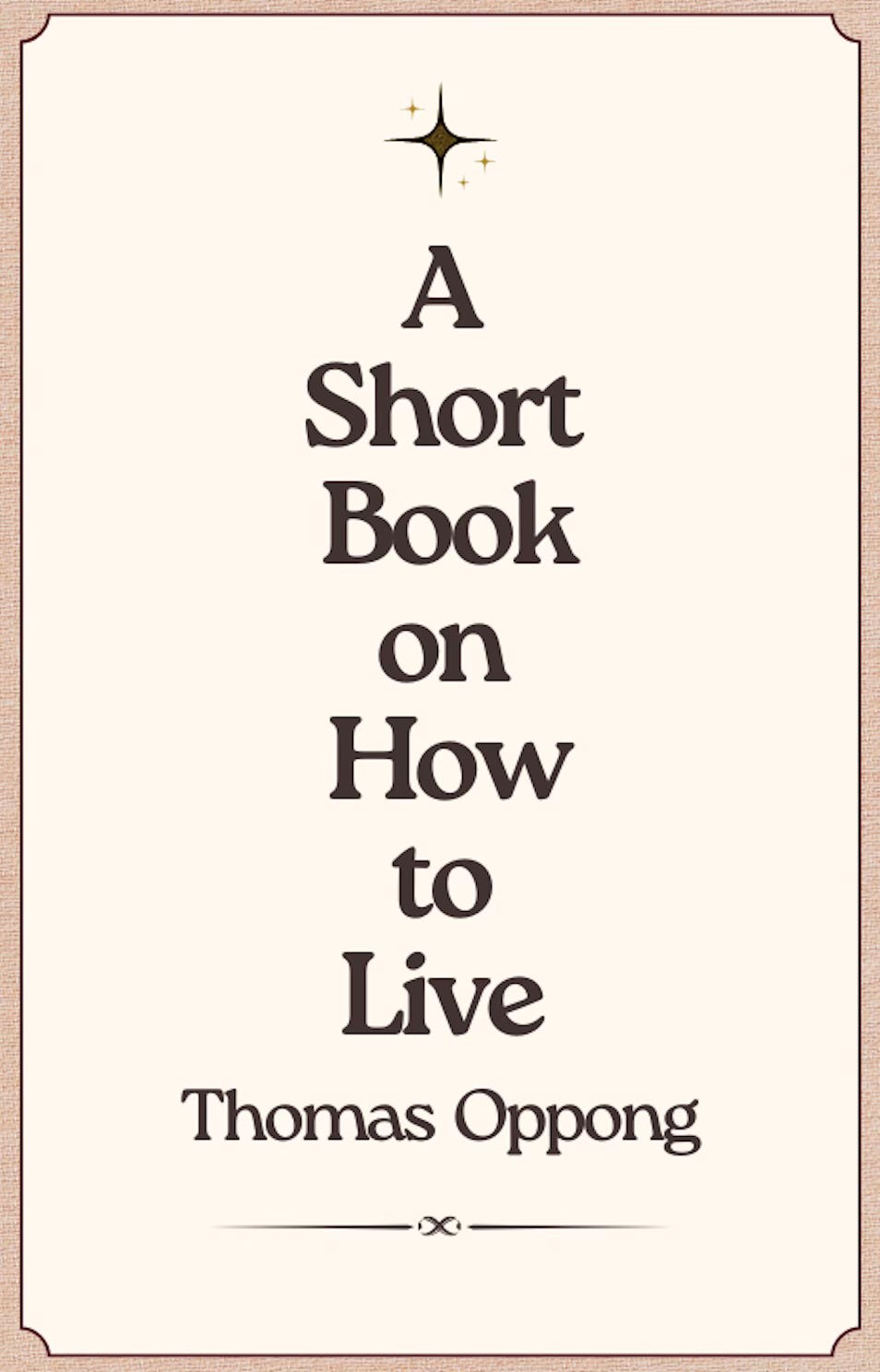Albert Camus on finding invincible calm
This quick quote by Seneca will force you to never look at life the same again
Postanly Weekly is a reader-supported newsletter. To support my work, you can upgrade to a paid subscription for $9 per month or $60 for an entire year. Or use this special link for 50% off forever. Plus free access to The Thinking Edge: 27 (with future updates) thinking tools, models, principles for life and career. Inspired by the wisdom of brilliant minds.
Together with Payhip
Payhip is the leading eCommerce platform for selling digital products. Sell anything from ebooks, courses, memberships, coaching, and more.
Build stunning online stores in minutes!
The best part: it's free - no monthly fees. Join over 150,000 sellers worldwide and launch your online business today!
“How are you this calm?” my daughter once asked me when I picked her up from school and we got stuck in traffic. I’ve been practicing “dichotomy of control” (stoic philosophy that emphasises the distinction between things that are within our control and things that are not) for years. It’s how I stay sane when everything around me feels overwhelming. Stoic philosopher Epictetus explained the concept of “control” in his “Enchiridion,” a manual. Chaotic. Unpredictable. Uncertain. No matter how much we wish these words away, they will forever be part of the human experience. Twists and turns are the very definition of life. It’s a guaranteed experience. But the human capacity to respond with love, joy and calm changes everything.
Existentialist and philosopher Albert Camus explains it beautifully:
“In the midst of hate, I found there was, within me, an invincible love. In the midst of tears, I found there was, within me, an invincible smile. In the midst of chaos, I found there was, within me, an invincible calm. I realised, through it all, that… In the midst of winter, I found there was, within me, an invincible summer. And that makes me happy. For it says that no matter how hard the world pushes against me, within me, there’s something stronger — something better, pushing right back.”
“Hate,” “tears,” “chaos,” and “winter” represent the harsh realities of life, while the counter-images of “love,” “smile,” “calm,” and “summer” symbolise the enduring strength within all of us. You have an invisible store of calm. You just have to know when to tap it. Camus grew up in poverty but excelled intellectually. His early philosophical work, particularly his essay “The Myth of Sisyphus”, explored the concept of the absurd — the idea that life is inherently meaningless.
Camus’s writings explore the human struggle to find meaning and happiness in a world that can seem devoid of these things. He thought we must create our own meaning in the face of an indifferent and sometimes hostile world. Camus was awarded the Nobel Prize in Literature in 1957 for his influential literary contributions, especially his novels and essays that reflect his philosophical ideas.
His statement, “an invincible summer within” means even in the midst of winter’s cold and darkness, there is a spark of warmth and hope. The inner strength he talks about is not passive; it is actively “pushing back” against the negativity and challenges we face. It is the foundation for resilience, optimism, and the ability to persevere through adversity.
The capacity to rise above the absurd
Camus observed the absurdity of life but also thought we can rise above the chaos of life and choose our own path. In the darkest of times, find your freedom.
“The only way to deal with an unfree world is to become so absolutely free that your very existence is an act of rebellion.” — Albert Camus
“In the midst of chaos, I found there was, within me, an invincible calm,” defines his stoic resilience. It represents a resilience and strength that cannot be easily overcome or defeated, even when life is unpredictable. It’s personal strength, resilience, or a deep understanding of life beyond mere chaos. Camus spoke of his “antifragility”. “Blessed are the hearts that can bend; they shall never be broken,” he said. Your inner peace can prevail over the turmoil of the world. Even when we are faced with overwhelming chaos, we can find a sanctuary of tranquillity within ourselves. A refusal to be swept away by the storms of life changes your approach to life.
Your reservoir of love, hope, and perseverance can triumph over any adversity. Even when life throws its worst at us, we possess the inner strength to persevere and find joy amidst sorrow. Inner calm, according to Camus, arises from a deep understanding of our own existence. He realised that life devoid of inherent meaning shouldn’t lead to despair. But should heighten your appreciation for the beauty and fragility of life.
Forge a path through the chaos
“Rule number one is, don’t sweat the small stuff. Rule number two is, it’s all small stuff.” — Robert Eliot
Life is inherently chaotic and unpredictable, often filled with suffering and misfortune. Yet, Camus believed it is within our capacity to find meaning and purpose amidst this chaos. Cultivate an inner calm that can withstand the storms of life. Author of “The Power of Now”, Eckhart Tolle observed, “The ultimate source of inner peace lies not in changing your external world but in transforming your relationship with it.”
How, then, do we cultivate inner calm?
First, recognise the human tendency to dwell on the negative, amplify the storms and diminish the moments of tranquillity.
Recognition is how you observe the thoughts you don’t need and detach from them. It’s also how we get away from the chatter of our minds and observe our thoughts and emotions without judgment.
It’s also how you step back from your emotional reactions and gain a clearer perspective on life experiences.
Let go of your resistance to things beyond your control
It aligns with Camus’s belief in the power of acceptance and resilience in adversity. It’s a mental shift towards your circle of influence.
Resistance only leads to unnecessary stress and frustration.
Let go of your resistance to avoid uncertainty. Adapt to circumstances beyond your control. And Acknowledge that you can’t control everything.
Redefine your definition of chaos
Camus’s philosophy of embracing the absurd and questioning our approach to life can help us expand our perception of life.
Think of the absurdity of life as a catalyst for transformation. Or chaos as an opportunity to take control of the trajectory of your life.
Losing a job might be seen as chaotic and distressing. Think of it as an opportunity for a career shift, skill development, or pursuing something you are deeply curious about.
Finally, Camus believed accepting life’s absurdity was not resignation but an embrace of the reality of life. He thought it was a call to transcend the limitations of fate and create our own values. That’s where inner calm becomes even more essential. In the face of life’s storms, calm within becomes your steadfast anchor, a refuge from the ebb and flow of emotions. It’s a mental state that allows us to live with resilience and composure. And, of course, find meaning and purpose even amidst the chaos.
“Within you, there is a stillness and a sanctuary to which you can retreat at any time and be yourself.” — Hermann Hesse
Building an invisible calm requires a paradoxical approach — an acceptance of the absurdity of life and cultivating a serene inner state at the same time. That’s how we find meaning even in the darkest of times.
Free post on Medium
This Quick Quote by Seneca Will Force You to Never Look At Life the Same Again
The space between the conscious and unconscious has always been the beginning of any change I’ve started. You don’t change by wanting to change. You change when you see yourself clearly. And stop the self-negotiation.
According to Stoic Philosopher Seneca, the consciousness to level-up is proof and a significant step of transformation.
Read the complete post.
Author and teacher Anthony de Mello on doing what grips our soul
“You must cultivate activities that you love. You must discover work that you do, not for its utility, but for itself, whether it succeeds or not, whether you are praised for it or not, whether you are loved and rewarded for it or not, whether people know about it and are grateful to you for it or not. How many activities can you count in your life that you engage in simply because they delight you and grip your soul? Find them out, cultivate them, for they are your passport to freedom and to love.”
Source: The Way to Love
Katherine May on happiness and sadness
“If happiness is a skill, then sadness is, too. Perhaps through all those years at school, or perhaps through other terrors, we are taught to ignore sadness, to stuff it down into our satchels and pretend it isn’t there. As adults, we often have to learn to hear the clarity of its call. That is wintering. It is the active acceptance of sadness. It is the practice of allowing ourselves to feel it as a need. It is the courage to stare down the worst parts of our experience and to commit to healing them the best we can. Wintering is a moment of intuition, our true needs felt keenly as a knife.”
Source: Wintering: The Power of Rest and Retreat in Difficult Times
Derek Sivers on being fully independent
“If you weren’t dependent on income, people, or technology, you would be truly free. The only way to be deeply happy is to break all dependencies.”
“Most problems are interpersonal. To be part of society is to lose a part of yourself … Do what you’d do if you were the only person on Earth.”
“Don’t let ideas into your head or heart without your permission.”
“You can’t be free without self-mastery … When you say you want more freedom from the world, you may just need freedom from your past self. You don’t see things as they are. You see them as you are.”
“Learn the skills you need to be self-reliant.”
Source: How to Live: 27 conflicting answers and one weird conclusion
NEW: A Short Book On How to Live
The book answers the same questions people asked 2,000 years ago: What matters? How do I live well? How do I suffer less? What do I do with this one wild, short, and strange life? Philosophers tried to answer these questions. So did psychologists, monks, scientists, poets and many thinkers.
I’ve read their work.
And summarised their wisdom in this book.
Get a copy now (free or donate what you want)
Books on doing life right (for free or donate what you want)
Personal growth tools I use
> Brain food, delivered daily
Every day Refind analyses thousands of articles and send you only the best, tailored to your interests. Loved by 530,181 curious minds. Subscribe for free.
> My best newsletter recommendations
Have a look at our favourite picks → Topics covered: learning, finance, starting up, productivity, technology, career, better living, seo, venture capital and more.
Explore the complete list of newsletters
Until Next Week,
Be Well.
Thomas | The Thinking Edge | The Kaizen Method
“And those who were seen dancing were thought to be insane by those who could not hear the music. – Neitzsche
Postanly Weekly is a reader-supported newsletter. To support my work, you can upgrade to a paid subscription for $9 per month or $60 for an entire year. Or use this special link for 50% off forever. Plus free access to The Thinking Edge: 27 (with future updates) thinking tools, models, principles for life and career. Inspired by the wisdom of brilliant minds.





this really resonates with my and the journey of a founder/business owner! curious on your thoughts to: https://jacqbirkel.substack.com/p/lemonade-stand-energy